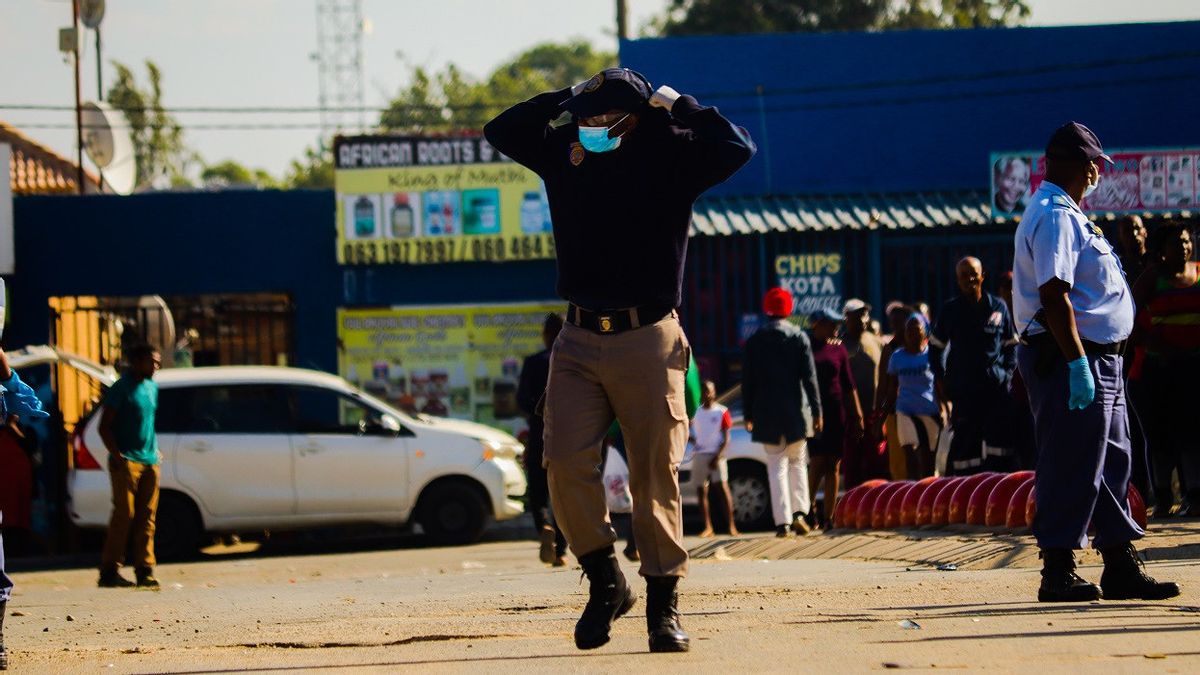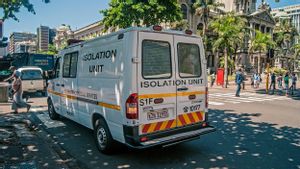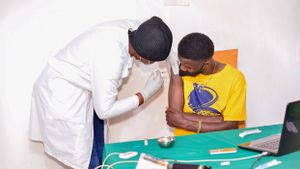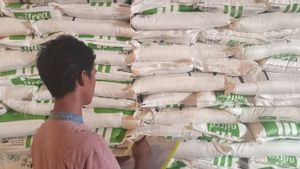JAKARTA - The Omicron variant that mutated very quickly became the dominant variant of the coronavirus in South Africa, less than four weeks after it was first detected there.
South Africa's National Institute for Infectious Diseases (NICD) said preliminary epidemiological data suggest Omicron is capable of evading some immunity, but existing vaccines should still protect against severe illness and death.
It said 74 percent of all viral genomes that had been sequenced last month were new variants, which were first discovered in samples taken on November 8 in Gauteng, South Africa's most populous province.
This saw the number of new cases reported in South Africa double from Tuesday to Wednesday, cited from Reuters December 2.
World Health Organization (WHO) epidemiologist Maria van Kerkhove told the briefing that data on how contagious Omicron is should be available "within a few days."
The Omicron variant, which has raised global concerns of a spike in infections, was first detected in southern Africa last week and has prompted governments across the continent to impose travel restrictions and take other measures to try and contain it.
The new variant has been detected in five of South Africa's nine provinces and is likely to be present across the country, the latest official report showed on Wednesday.
The daily number of reported cases doubled to 8.561. It is not known how many of them were Omicron variants, as not all test samples were subject to genomic sequencing, but the official presentation said the Omicron variant quickly became the dominant variant, beating out the Delta variant.
South Africa performed genome sequencing on only a fraction of the total sample collected each week. The NICD does not provide the total number of confirmed cases of Omicron variant infection.
"The mutation (profile) and epidemiologic features suggest that Omicron is able to overcome some of our immune protections (to cause infection) but protection against severe disease and vaccine-induced death should not be greatly affected," says a recent report from the surveillance network. .
The earliest samples in which variants were detected were collected on November 8 in Gauteng, South Africa's most populous province, where Johannesburg and Pretoria are located. Since then, it has been detected in the Eastern Cape, KwaZulu Natal, Mpumalanga and Western Cape.
SEE ALSO:
Previously, the organizers suspended a music festival for young people after 36 people tested positive for COVID-19 at the location.
The Ballito Rage music festival kicked off on Tuesday in the city of Ballito, north of Durban on South Africa's east coast. Of the 940 people who were tested for COVID-19 during the first eight hours of the event, 32 guests and four staff tested positive.
It is not known whether the 36 people were infected with the Omicron variant or another variant.
To note, the Delta variant prompted South Africa's third wave of infections, which peaked at more than 26.000 cases per day in early July. Since the start of the pandemic, the country has reported nearly 3 million infections and more than 89.000 deaths, the most on the African continent.
The English, Chinese, Japanese, Arabic, and French versions are automatically generated by the AI. So there may still be inaccuracies in translating, please always see Indonesian as our main language. (system supported by DigitalSiber.id)


















